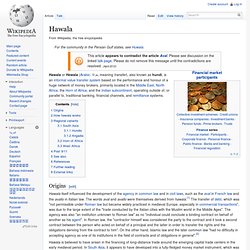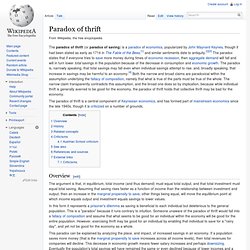

Bureau van Dijk - Bureau van Dijk's comprehensive Orbis company database. Free Online Accounting Software for Small Business - Wave Accounting. Hawala. Hawala or Hewala (Arabic: حِوالة, meaning transfer), also known as hundi, is an informal value transfer system based on the performance and honour of a huge network of money brokers, primarily located in the Middle East, North Africa, the Horn of Africa, and the Indian subcontinent, operating outside of, or parallel to, traditional banking, financial channels, and remittance systems.

Origins[edit] Hawala is believed to have arisen in the financing of long-distance trade around the emerging capital trade centers in the early medieval period. In South Asia, it appears to have developed into a fully-fledged money market instrument, which was only gradually replaced by the instruments of the formal banking system in the first half of the 20th century. Today, hawala is probably used mostly for migrant workers' remittances to their countries of origin.
Paradox of thrift. The paradox of thrift is a central component of Keynesian economics, and has formed part of mainstream economics since the late 1940s, though it is criticized on a number of grounds.

Overview[edit] The argument is that, in equilibrium, total income (and thus demand) must equal total output, and that total investment must equal total saving. Assuming that saving rises faster as a function of income than the relationship between investment and output, then an increase in the marginal propensity to save, other things being equal, will move the equilibrium point at which income equals output and investment equals savings to lower values.
In this form it represents a prisoner's dilemma as saving is beneficial to each individual but deleterious to the general population.